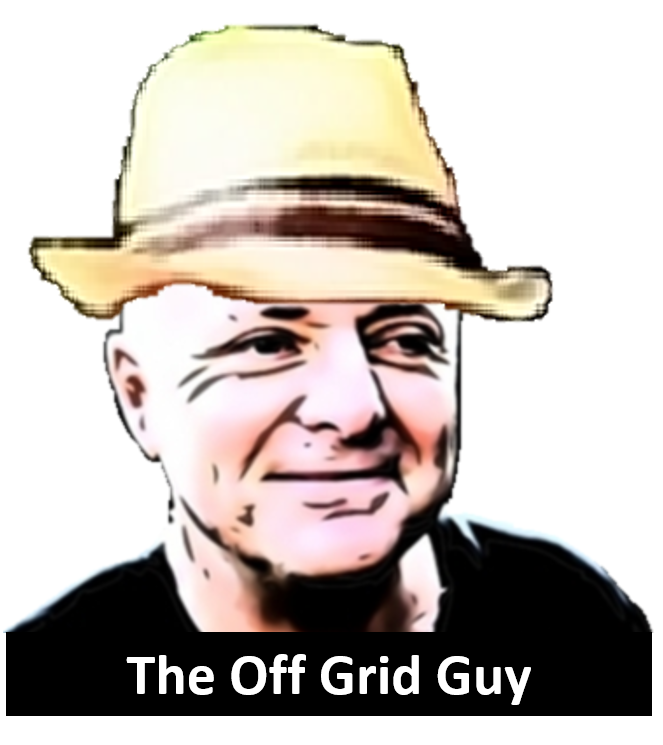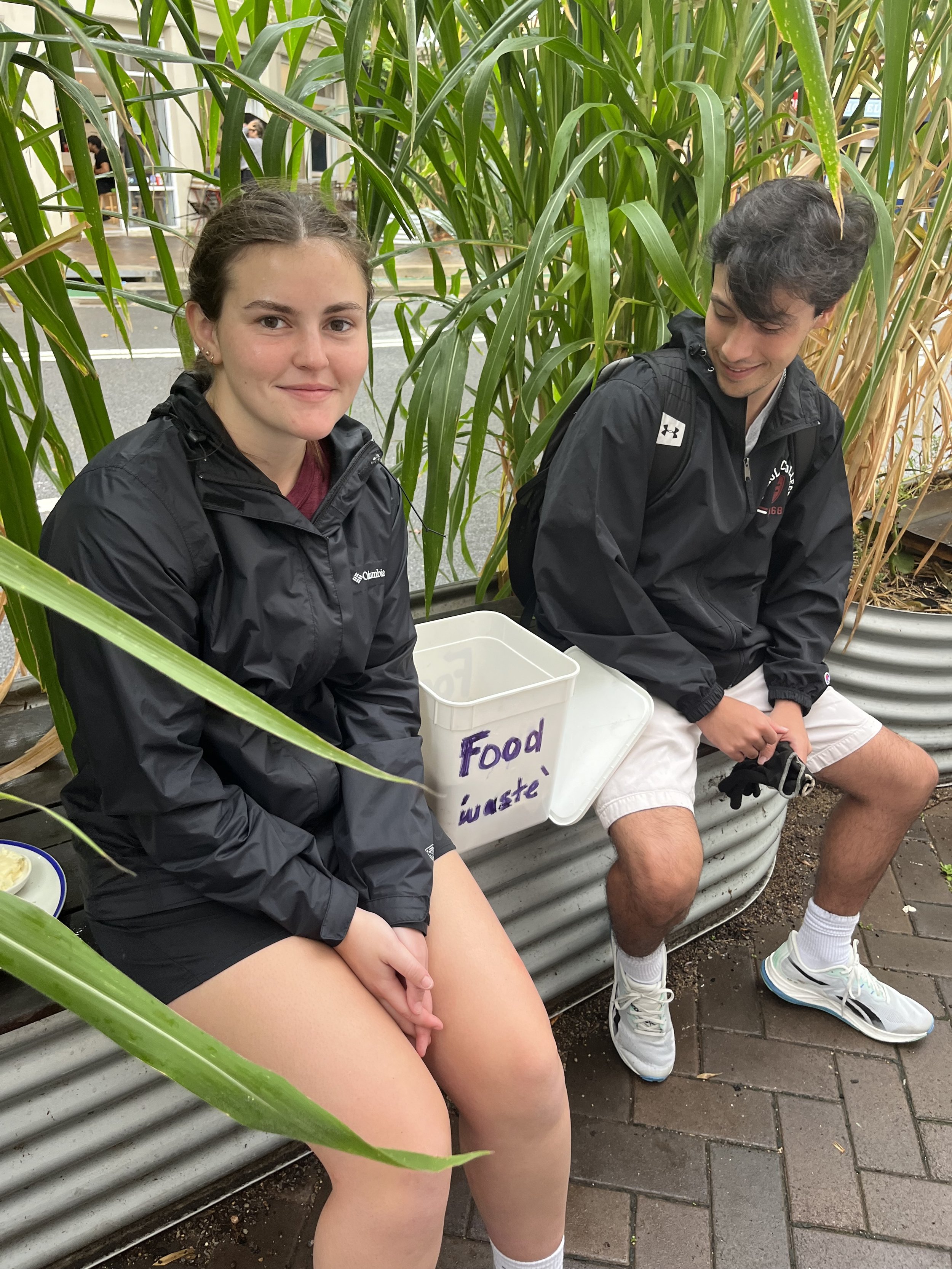• Here I am with another intern, Henry, on a coolseat with food waste we bring from our units to put in the coolseat compost - we lift the lid we’re sitting on and put the food waste in
I’m Grace from New York, United States, composting now in Sydney, Australia
Hello everyone!
My name is Grace Canepari and I’m interning with Michael Mobbs’ Sustainable House until the middle of March. I’m from the United States, and I’m about halfway through my junior year at Union College in Schenectady, New York where I am studying economics and environmental science.
Through my studies I’ve learned about urban redevelopment and renewal, Earth’s changing climate - which I’m finding harrowing, how to use software to create interactive maps, and how we can build environmentally friendly buildings.
I’ve fallen in love with the practicality of both economics and environmental science, which people usually think work against each other. I’m hearing misconceptions from others outside and inside university that green solutions are always much more expensive, especially when it comes to avoiding using energy, water and materials that do not change the climate. I find that economics and environmental science actually work together to avoid changing Earth’s climate.
I am passionate about communities developing in an environmentally friendly way. I want to come up with sustainable changes that are profitable for them, whether that is through creating more jobs, saving money, or providing a service. I want to do this in the internship.
During my internship in Sydney, Australia, by installing and maintaining composting benches - called coolseats - on the streets and properties of Chippendale I’m working with locals and other interns to implement a goal here to end food waste in Chippendale in 2024
There’s a video I made about composting food waste in coolseats at the Haymarket Foundation in Chippendale on my blog here.
What’s it like in my hometown?
I am from Newington, Connecticut. It’s a mid-sized town in the centre of Connecticut, next to the capital of Hartford. A fun fact about Newington is that we claim to have the smallest, naturally running waterfall in the United States.
• Mill Pond Falls, located in Newington Town Centre, adjacent to Mill Pond Park is my favourite spot in the spring, when the melting snow makes the waterfall flow faster, and in the fall when it’s framed by vibrantly coloured trees.
It’s called Mill Pond Falls, and we have many town events that are centred around the falls. The biggest one is the annual Waterfall Festival, where local businesses showcase their work and host arts and crafts for kids. There is live music, food, and a chalk art festival on the path around the waterfall that local artists and students can participate in.
• Schenectady Green Market. This street is only open to foot traffic on Sundays
• The Nott is one of my favourite study spots on campus. I also love to take #NottShots
I attend Union College, a small school with about 2200 students. Our campus is small and centred around a 16-sided building called The Nott, named after one of the school’s former long-term presidents. The Nott is one of my favourite places on campus. I love the architecture and using it as a study space.
• The Schenectady Green Market is my favourite places to go on the weekends. It’s a big farmers market that happens every Sunday morning. There are over 50 vendors with delicious food, live music, fresh produce and flowers, and even some handmade crafts and goods like soaps and baskets. I love to get empanadas, fresh fruit, and the apple cider doughnuts.
Novice Composter!
Before coming here, I had little experience with composting.
In my hometown of Newington, Connecticut, the closest thing to "composting" was an open pile of food waste in my neighbour's backyard. They added coffee grounds and spoiled produce, warning me to stay away due to the potential for rodents. Unfortunately, there were no public composting bins or collective disposal options in my town, including the school cafeteria, local restaurants, and cafes.
I didn't give food waste much thought, especially since there were no programs like pay-to-throw in some other 3,000 US towns and cities, and there is no mandatory composting in Connecticut and New York.
My perspective shifted when I arrived at university. Every dining hall on campus has three waste disposal options: garbage, recycling, and composting. I remember being excited about it at first because I felt like I was doing my part to help the planet. But then I watched my peers toss entire plates of food into the garbage and put plastic condiment containers in the compost bin. As a result of this conduct the dining hall workers now combine the recycling, garbage, and compost into one bin because of all the cross-contamination between them.
When I arrived in Australia my friends and I went to our first café. I noticed the wooden to-go utensils and the use of paper and cardboard materials for takeaway cups and boxes. I also saw the government issued food waste bin, something that I hadn’t seen at school or at home before. This made me realize that many people in Sydney were willing to engage in composting or, at the very least, were open to learning about it, and they showed a genuine interest in sustainable practices.
So far in my internship I’ve learned about the coolseats, I’ve gardened and weeded at Auburn Girls High School, and I’ve learned more about composting and how to maintain a composting bin. I also have learned about some of the tools used to compost like a compost auger, which is used to turn over the compost and aerate it. I am looking forward to applying what I’ve learned in the coming weeks and getting more hands-on experience with composting and gardening!
I’m with the worms!
Grace Canepari, Intern






